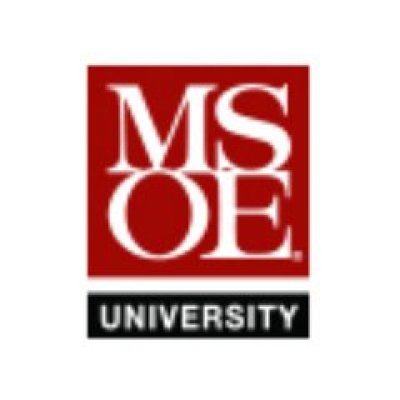Richard Kelnhofer, Ph.D.
Associate Professor Milwaukee School of Engineering
- Milwaukee WI
Dr. Richard Kelnhofer is an expert in the areas of electrical engineering and higher education pedagogy.

Milwaukee School of Engineering
View more experts managed by Milwaukee School of Engineering
Education, Licensure and Certification
Ph.D.
Electrical Engineering
Marquette University
1997
M.S.
Electrical Engineering
Marquette University
1992
B.S.
Electrical Engineering
University of Wisconsin-Milwaukee
1987
Biography
Prior to joining MSOE, Dr. Kelnhofer gained industrial experience in the telecommunications sector at Norlight Telecommunications and KDL working in numerous technical and management areas. He and his teams were responsible for the design of a multistate fiber optic network along with the daily operations, monitoring and support of the network. Dr. Kelnhofer also was responsible in the design and operation of Norlight and KDL's datacenters.
At MSOE, Dr. Kelnhofer led the Electrical Engineering Techonolgy and Electrical Engineering programs as Program Director from 2008-2012 and 2012-2019, respectively.
Areas of Expertise
Accomplishments
Falk Engineering Educator Award, MSOE
2013
Affiliations
- ASEE - Member
Social
Selected Publications
Implementation of Rapid Review as Formative
ASEE Annual Conference & ExpositionJennifer Bonniwell and Richard Kelnhofer
2024
Many undergraduate electrical engineering programs require a circuit analysis course early in the curriculum. Students must make it through the circuits sequence early on in their undergraduate studies. These students typically have yet to see connections and repetition of ideas and concepts throughout the electrical engineering discipline. A few common struggles have been anecdotally observed: (1) many students deliberate over what method or technique to use for solving a problem, (2) if their initial approach does not result in a successful solution, they find it challenging to see alternative paths, and (3) series and parallel connections of components are often confused. During the pandemic, many faculty were teaching courses virtually, and polls were used in one section of XX#### at [the University] as a formative assessment technique. This assessment provided a quick check of the students’ conceptual understanding of recent topics presented in the course. Through these assessment polls, it was noticed that student misconceptions on series and parallel connections of components were reduced throughout the term with repeated exposure to these quick check-in points. After the pandemic, without the online classroom environment, the formative assessment polls were no longer used. Students continued to struggle with foundational circuit analysis concepts or spend a lot of time determining how to start a problem. This triggered the creation of "Rapid Reviews" that are incorporated at the start of most lectures. A Rapid Review is a short conceptual problem, the students are given one minute to consider the problem, and then the faculty member discusses the result with the students. After implementing the Rapid Reviews, there has been increased engagement and fewer of the misconceptions previously mentioned are making their way into homework or exams. In this work-in-progress paper, a literature review of the impact of formative assessments with be presented, followed by details of the Rapid Reviews along with anecdotal data on the effectiveness of their use.
It’s All About Engagement: Infusing the Mobile Studio Approach Throughout the Electrical Engineering Curriculum
ASEE Virtual Annual ConferenceHolland, S., Bonniwell, J., Carl, J., Faulkner, B., Kelnhofer, R., Prust, C., and Weber, L.
2021
A recent trend in electrical engineering programs is the adoption of mobile studio pedagogy, which champions small, portable, low-cost hardware/software systems in support of student-centric educational activities. To date, the engineering education literature on mobile studio usage has typically focused on the implementation of a mobile studio platform either in a single isolated course or several courses within a sequence. This work proposes infusing a hands-on mobile studio approach throughout the electrical engineering curriculum. This approach provides a cohesive experiential learning experience for students throughout their degree program and fosters a climate of inclusivity and accessibility. The electrical engineering curriculum at XXXX is being redeveloped as part of a conversion from a quarter to a semester system, which presents a unique opportunity to fully integrate a mobile studio approach as a core element of the curriculum. This paper presents a summary of the current state of the engineering education literature on mobile pedagogy and highlights empirically derived best practices. This sets the stage for a discussion of the proposed curriculum integration of a mobile studio model and how it has the potential to significantly increase student engagement. Finally, important logistics are examined, including considerations of a common mobile platform across multiple courses, models for student-owned hardware, mobile studio hardware selection, and classification of which courses may still require traditional bench or specialized hardware to achieve learning outcomes. While this case study presents a unique opportunity of integrating the mobile studio pedagogy as part of an entire curriculum redevelopment, the best practices and approaches are applicable to any faculty seeking ways to incorporate mobile studio
Work in Progress: Do It Early and Do It Often – Engineering Math for First-Term EE Students
ASEE Annual Conference & Exposition2018
This paper analyzes a first-year introduction to electrical engineering course at (REDACTED). The purpose of the course is three-fold: to introduce new students to the major through a number of engaging laboratory exercises, to introduce new students to other students in their cohort and to electrical engineering faculty at the university, and to reinforce high-school-level mathematics in the context of engineering problems.
This work-in-progress paper will analyze the effectiveness and impact in subsequent courses caused by implementing engineering mathematics into this introductory electrical engineering course. The study will consist of a grade comparison between students who took the introductory course in the three years before the inclusion of engineering math content and those who took the introductory course in the two years after the addition of engineering math content.

